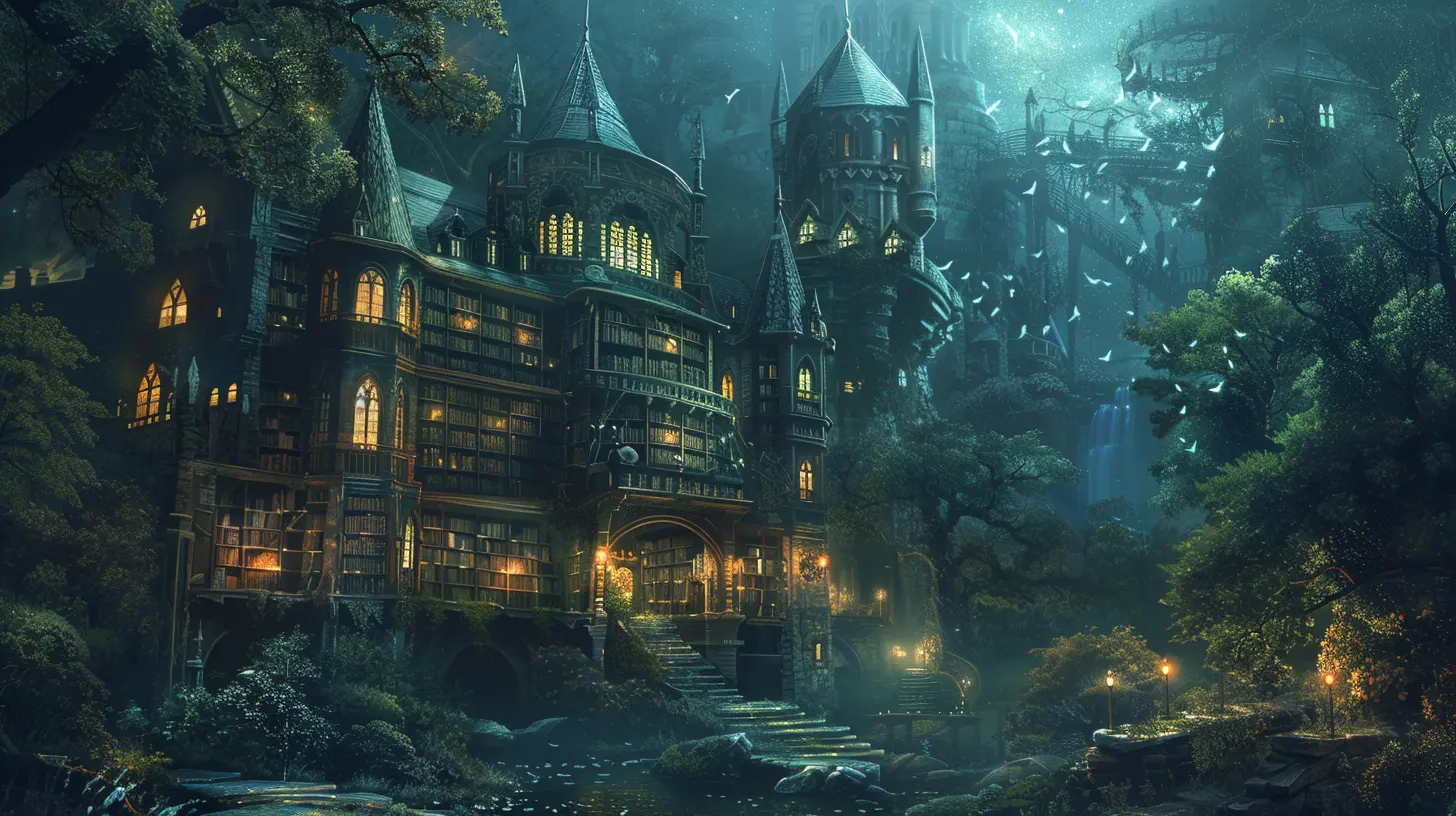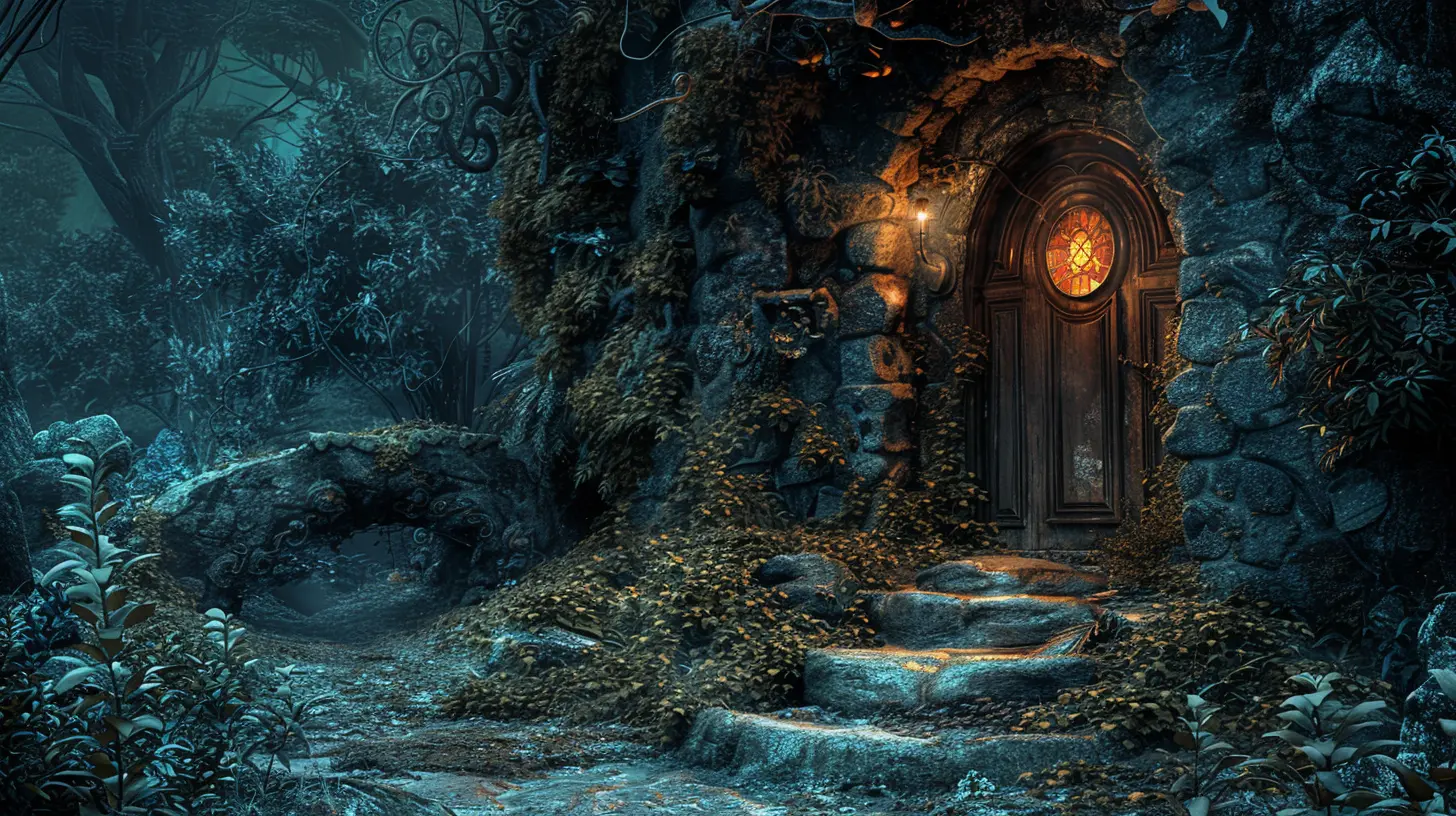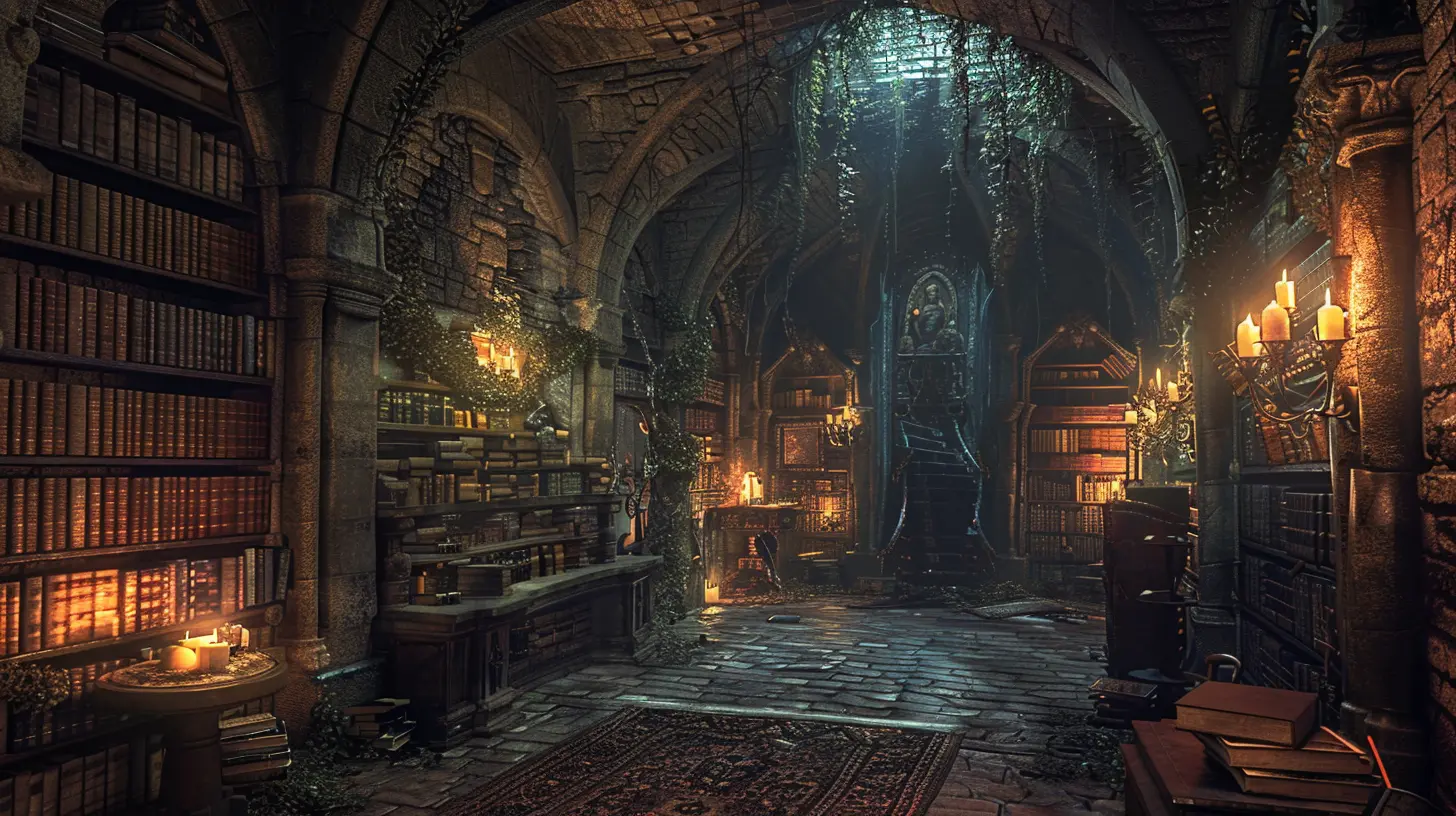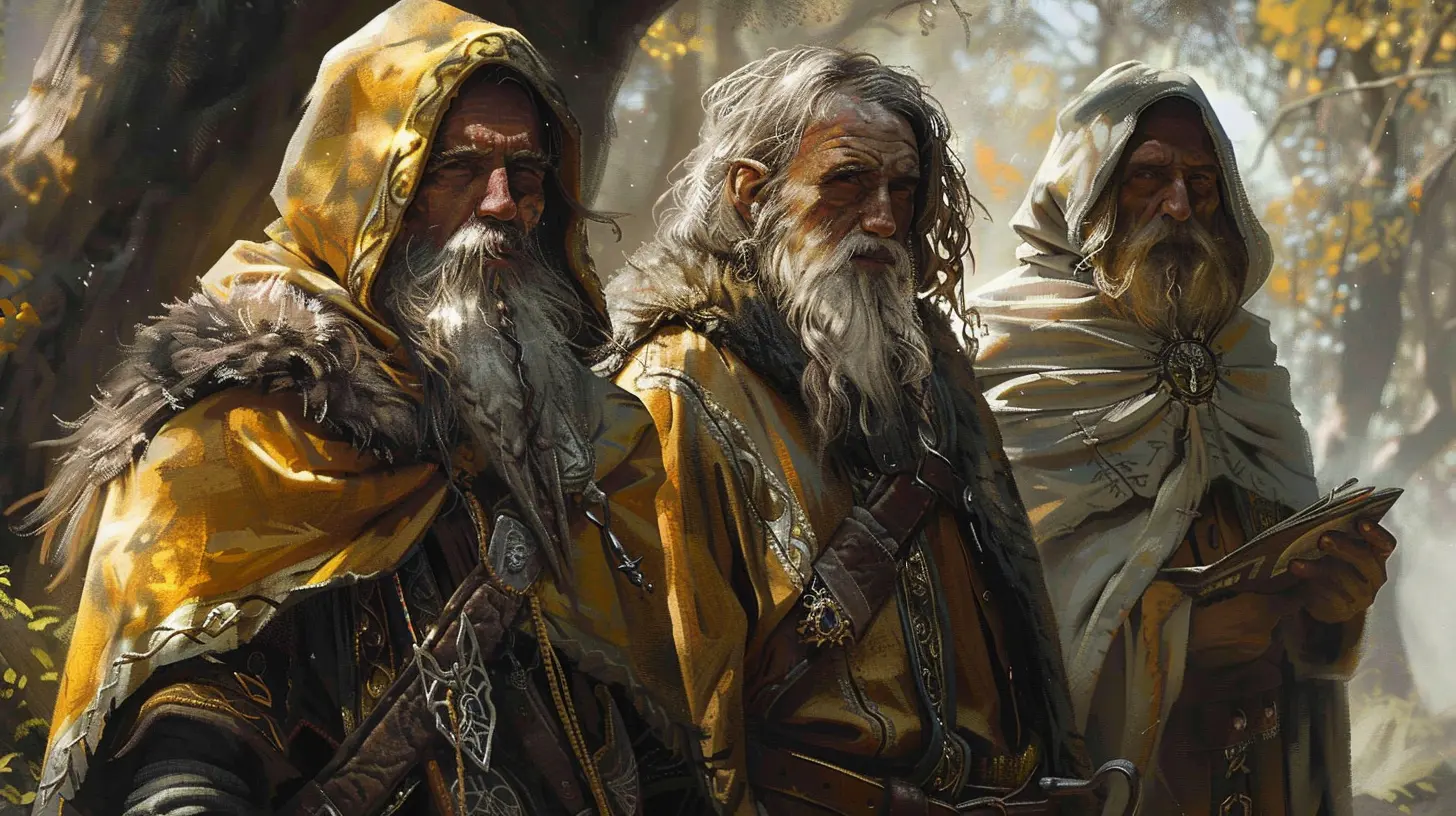The Art of Exploration: Discovering Hidden Secrets in Fantasy Worlds
31 August 2025
Have you ever found yourself wandering through a sprawling fantasy world, completely lost, but somehow totally okay with it? There's something undeniably magical about the thrill of uncovering hidden gems tucked away in the vast landscapes of video games. Whether it’s stumbling upon a forgotten ruin, unlocking a secret quest, or meeting a quirky NPC with a treasure trove of lore, the art of exploration takes gaming to a whole new level. Fantasy worlds are built for adventurers, and it's the secrets lurking around their corners that keep us coming back for more.
So, why does exploration feel so rewarding? How do game developers craft these intricate worlds filled with surprises? And why do gamers like you and me find ourselves obsessively combing through every pixel of a sprawling map for that last hidden Easter egg? Let’s dive into the nitty-gritty of what makes exploration in fantasy games so captivating.
Why Exploration Hits the Sweet Spot
Let’s be honest—there’s something primal about wanting to unearth buried treasures. Humans are natural-born explorers. It’s hardwired into us. Fantasy games aren’t just about grinding stats or following main story objectives; they’re about discovery and curiosity.Think about it. When you unlock a secret area or solve a cryptic puzzle, it feels like you’ve outsmarted the game. You weren’t just following the path laid out for you—you deviated, took risks, and were rewarded for it. That dopamine rush? It’s no accident. Developers want you to feel like an adventurer. They create these living, breathing playgrounds precisely because they know players crave a sense of accomplishment.
Exploration taps into our desire for autonomy. You’re not just a cog in the machine when you're exploring—you’re the architect of your own journey. Sure, the main quest might be pounding on your door, but sometimes the best memories come from wandering off the beaten path. 
Designing Fantasy Worlds: A Developer’s Guide to Wonder
Now, don’t think for a second that these intricate, immaculately crafted worlds happen by chance. Game developers spend years constructing detailed environments for players to get lost in. Everything—the crumbling stone pathways, the eerie glow of a far-off tower, the sound of rustling leaves—feels purposeful.But how do they do it? How do they make these worlds feel real and worth exploring? Here are some of the ways developers craft unforgettable fantasy worlds:
1. Layered Storytelling Through Environment
Fantasy worlds tell stories without needing paragraph after paragraph of text. Instead, they use environmental storytelling. Ever walked into a derelict castle and pieced together the fate of its long-dead occupants based on the items scattered around? That’s environmental storytelling at work.Skyrim’s Bleak Falls Barrow is a perfect example. It’s not just a dungeon—it’s a window into the past. The placement of skeletons, the dusty urns, and the ancient murals on the walls all whisper forgotten tales to the player.
2. Rewarding Curiosity
Here’s the golden rule of exploration: curiosity must be rewarded. Developers scatter treasures—whether they’re literal gold, unique weapons, or hidden lore—around the map to make players feel like their efforts paid off. Without meaningful rewards, exploration can feel pointless.Think of games like The Legend of Zelda: Breath of the Wild, where even the tiniest Korok seed puzzles feel satisfying. Why? Because the game respects your time and curiosity.
3. Open-Ended Design
The best fantasy worlds never shout, “HERE’S THE SECRET!” Instead, they whisper. Subtlety is key. Open-world games thrive when they encourage players to go off-script. A mountain in the distance isn’t just a backdrop—it’s an invitation. A suspicious crack in the wall isn’t random—it’s probably hiding a passage.Developers like FromSoftware (Dark Souls, Elden Ring) are masters of this. Their world design feels organic, almost like a living, breathing entity waiting to be unraveled. 
The Role of Exploration in Game Progression
Okay, so wandering around aimlessly is fun, but how does exploration tie into actual game progression? Simple: it enhances the experience by intertwining with storytelling, world-building, and gameplay mechanics.Ever noticed how some of the most powerful weapons, rare items, or game-changing abilities are hidden in the furthest corners of the map? This isn’t by chance. It’s a deliberate way of encouraging you to explore.
Take Horizon Zero Dawn, for instance. Aloy’s best weapons aren’t handed to you. Instead, you’re nudged to track down ancient ruins, solve puzzles, and unlock vaults. It’s a clever way to ensure that exploration feels like a core part of the game—not just an optional side activity. 
The Addictive Power of Hidden Secrets
Secrets are the lifeblood of exploration. Without them, worlds would feel flat and lifeless. But what makes secrets so darn addictive?It boils down to psychology. Secrets tap into the concept of “the unknown” and our desire to uncover it. Gamers love the idea that there’s something just beyond their reach—a hidden room, an unreadable map, or a mysterious NPC with cryptic dialogue.
Easter Eggs: The Hidden Treats We Crave
Let’s talk about Easter eggs. These clever little nods, jokes, or references are a staple of fantasy games. They’re not part of the main experience, but finding one feels like being in on a shared inside joke with the developers.Take the Witcher 3, for example. Throughout the game, there are subtle references to pop culture, literature, and even other video games. Finding them not only adds depth to the world but also makes you feel like you’ve stumbled upon a secret meant just for you.
Puzzles and Mysteries: Keeping the Brain Engaged
There’s a reason why puzzles and mysteries are staples in exploration-heavy games. They force you to stop, think, and engage with the world on a deeper level. Think back to the intricate Shrines in Breath of the Wild or the enigmatic Stone Circles in Assassin’s Creed: Origins. Unraveling these secrets is like scratching an itch you didn’t know you had.Exploration and Multiplayer: Shared Adventures
Exploration doesn’t have to be a solitary activity. Some games, like Sea of Thieves, thrive on the idea of group-based exploration. There’s a unique buzz that comes from uncovering secrets with friends—especially when everyone brings their own interpretations to the table.Imagine sailing to a remote island with your crew, unearthing a buried treasure map, and piecing together its cryptic clues. The camaraderie and shared thrill of discovery amplify the experience tenfold.
Even in more competitive games like World of Warcraft or Destiny 2, there’s joy in teaming up with friends to uncover hidden dungeons or legendary gear.
Tips to Master the Art of Exploration
Ready to level up your exploration skills? Here are some quick tips to help you unearth every hidden secret in a fantasy game:1. Trust Your Gut
If something seems out of place—a suspicious rock, a path that isn’t on the map—follow your instincts. Secrets often lie where you least expect them.
2. Talk to NPCs
Some of the best hints come from NPC dialogue. Pay attention to their stories, rumors, and cryptic ramblings. They might just point you in the right direction.
3. Experiment with Mechanics
Don’t be afraid to tinker with the game’s mechanics. Use abilities, tools, or items in creative ways—you’d be surprised at what you can unlock.
4. Take Your Time
Rushing through a game is the fastest way to miss out on hidden details. Slow down, soak in the atmosphere, and let curiosity guide you.
Why Exploration Matters
At its core, the art of exploration isn’t just about uncovering secrets—it’s about the journey. Fantasy worlds are built to whisk us away from mundane reality and drop us into places we can only dream of. By rewarding curiosity, fostering creativity, and invoking a sense of wonder, exploration becomes a cornerstone of what makes gaming so unforgettable.So, the next time you’re playing a fantasy game, take a break from strict objectives. Wander down that winding path, investigate the ancient ruins, and dive headfirst into the unknown. Who knows? You might just uncover a secret that makes your adventure one for the books.
all images in this post were generated using AI tools
Category:
Fantasy RpgsAuthor:

Jack McKinstry
Discussion
rate this article
1 comments
Catherine Taylor
Ah yes, because who doesn’t love wandering aimlessly in pixels?
September 8, 2025 at 4:00 PM

Jack McKinstry
Absolutely! There’s something magical about uncovering the unknown in these pixelated realms.


